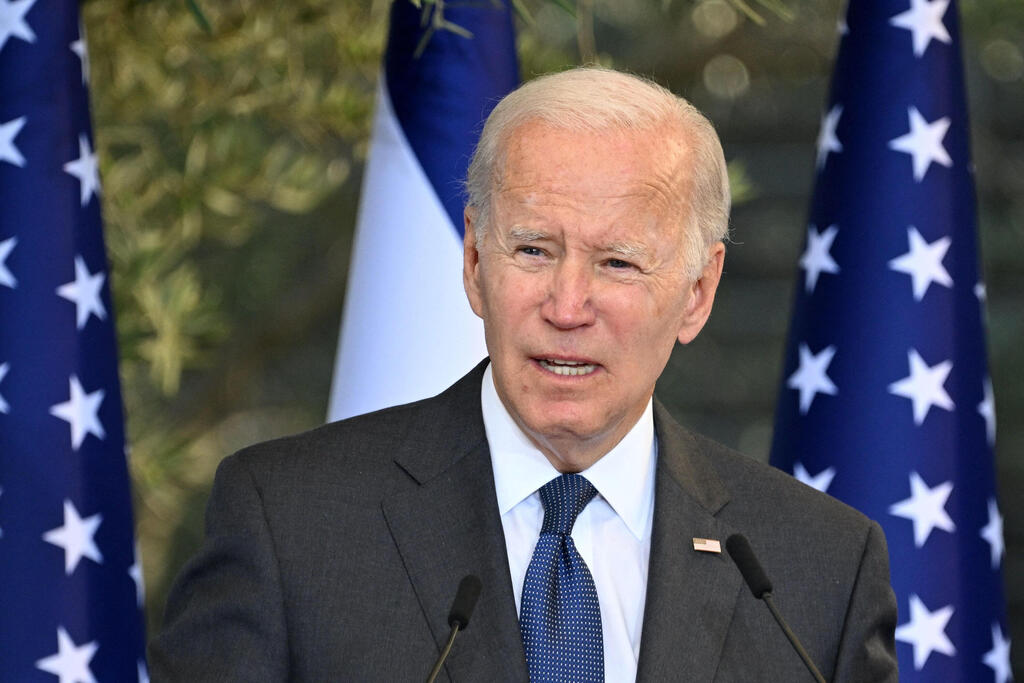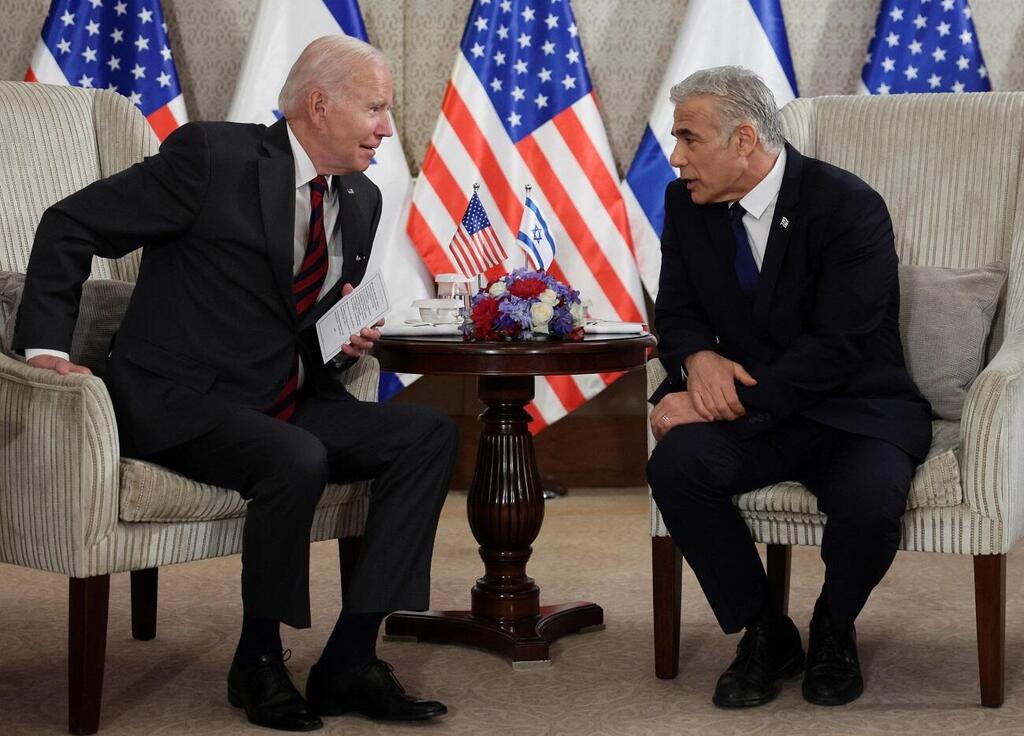Getting your Trinity Audio player ready...
U.S. President Joe Biden's visit to Israel did not lead to major breakthroughs in bridging the differences between the U.S. and Israel regarding Iran.
Biden and his team are still not willing to consider military options, and still skirting around setting an end date to the diplomatic efforts toward reaching a new nuclear pact with Iran.
Joe Biden and Yair Lapid sign a joint declaration on Iran
(Photo: GPO)
The only issues that made significant progress are financial aid to Israel and technological cooperation on defensive weapons, and potentially also for certain offensive weapons that Biden is willing to push forward. What started as financial aid for the procurement of Iron Dome interceptors and for the development of a powerful laser-based air defense system has taken several leaps forward.
The supposed gift that Biden brought along with him is a very reserved agreement. While this still requires some decoding, the agreement will grant Israel will receive offensive weapon systems or aid to obtain such with American collaboration which reassures both countries' consensus that Iran mustn't attain nuclear arms.
Regarding all other matters, the Americans won't bend, despite Prime Minister Yair Lapid and Defense Minister Benny Gantz pressing them for practical answers to Israel's concerns.
The American president and his team were asked what is the deadline for diplomatic efforts with Iran while it simultaneously makes progress in enriching uranium and gets closer to becoming a nuclear state. Their answer: they can't commit to a deadline, and are still sticking to diplomatic efforts.
The Israelis then said: Iran won't bend unless a legitimate military threat is held over its head. To this, the Americans responded that they are not yet willing to consider a direct military response.
Prior to the visit, the president was advised to avoid making vain statements that'll hurt his reputation, as former president Barack Obama did in the past when he threatened to attack and punish Syria in case the Assa regime uses chemical weapons against its civilians in 2013. When Syrian President Bashar al-Assad did just that, Obama refused to give the American military forces the go-ahead and called on none other than Russian President Vladimir Putin to save the day.
Biden and his team stick to the belief that military means are an absolute last resort. Well, "what exactly would bring us to that last resort," Israel asks. What conditions would bring the U.S. to the conclusion that the time has come, and there is no other option rather than to utilize its wide array of military means?
The Americans refused to commit, even when the Israelis tried to put them on the spot, and asked specifically about the moment in which Iran would have enough enriched uranium for three, four, or five bombs; or when Iran would manage to put together an explosive device and make it small enough to be mounted on a missile and aim it at Israel; or perhaps once Iran does its first nuclear test. Even then, Biden refused to provide clear answers.
The Biden administration feels at ease with the Israeli government, perhaps too much so, especially with Lapid and Gantz.
Washington's fear has always been that one day Israel may surprise it. This fear peaked around 2010-2012 when Benjamin Netanyahu was prime minister and Ehud Barak was defense minister. Now, with the Lapid-Gantz duo, the Americans are quite certain that Israel will not surprise them.
Nevertheless, Biden requested Lapid to refrain from doing anything unexpected, making him feel comfortable enough to collaborate with Israel on security issues that are solely defensive.
The Israelis asked to know - if a new nuclear agreement isn't reached within the next month, what does the U.S. plan to do? To this, the Americans responded very generally, by claiming they'll ramp up sanctions and their enforcement at the diplomatic level with Iran and with the UN. Aside from this, no other commitments were made.
Biden, despite his comfort in the company of the current government, has no guarantee that in six months an alternative Netanyahu-led government won't hang on to his every word and pressure him to stand by it.
Therefore, the disagreements between the U.S. and Israel regarding a potential course of action against the Iranian issue have not been solved. But there is one substantial promise, the Jerusalem Proclamation - the U.S. promised to make every effort to allow Israel to protect itself autonomously. This promise was made in full awareness of the preparations Israel is currently building, including militarily, meaning that the U.S. grants the IDF and Mossad legitimacy to act as they see fit.







